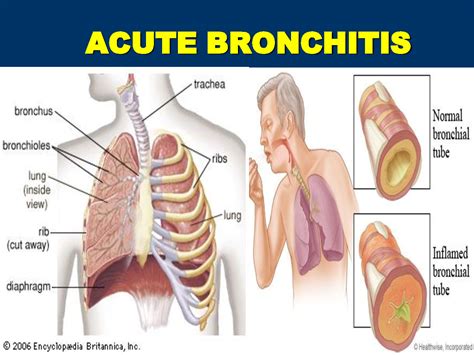How to Tell If You Have Bronchitis: Recognizing the Symptoms
Bronchitis, an inflammation of the bronchial tubes, can be a real nuisance. Knowing how to identify its symptoms is crucial for seeking timely treatment and preventing complications. This guide will help you understand the telltale signs of bronchitis, so you can make informed decisions about your health.
Key Symptoms of Bronchitis
While a doctor's diagnosis is essential, recognizing these common symptoms can help you understand if you should seek medical attention:
Persistent Cough:
This is the hallmark symptom of bronchitis. It's typically a dry cough initially, but can become productive (producing mucus) after a few days. This cough can be quite severe and last for several weeks. A cough lasting longer than a couple of weeks warrants a visit to your doctor.
Chest Congestion:
You may experience a feeling of tightness or pressure in your chest due to the inflammation and mucus buildup in your airways. This can make it difficult to breathe deeply.
Mucus Production:
As the bronchitis progresses, your cough may produce mucus. The color can vary; it's not necessarily an indicator of severity. While clear mucus is common, yellow or green mucus doesn't automatically signify a bacterial infection. A doctor can determine the cause.
Shortness of Breath:
While less common in acute bronchitis, shortness of breath, especially with exertion, can be a significant symptom. If you experience significant shortness of breath, seek immediate medical attention.
Wheezing:
A whistling or wheezing sound during breathing is another potential symptom, particularly if you have underlying respiratory conditions like asthma.
Fatigue and Body Aches:
Feeling unusually tired and experiencing muscle aches and pains are common with bronchitis, mirroring symptoms of other respiratory illnesses.
Differentiating Bronchitis from Other Illnesses
It's important to remember that bronchitis symptoms can overlap with other respiratory illnesses, such as the common cold or pneumonia. Self-diagnosis is unreliable; always consult a healthcare professional for accurate diagnosis and treatment.
Here's a brief comparison:
-
Common Cold: Typically includes a runny nose, sneezing, and less severe chest congestion than bronchitis. The cough is usually less persistent.
-
Pneumonia: Generally presents with more severe symptoms, including high fever, chills, and significant shortness of breath. Pneumonia requires immediate medical attention.
When to See a Doctor
While many cases of acute bronchitis resolve on their own, it’s important to seek medical advice if:
- Your cough lasts for more than three weeks.
- You have a high fever (over 100.4°F or 38°C).
- You experience severe shortness of breath.
- You are coughing up blood.
- You have underlying respiratory conditions.
This information is for educational purposes only and does not constitute medical advice. Always consult a healthcare professional for any health concerns. Early diagnosis and treatment can help prevent complications and ensure a faster recovery.
